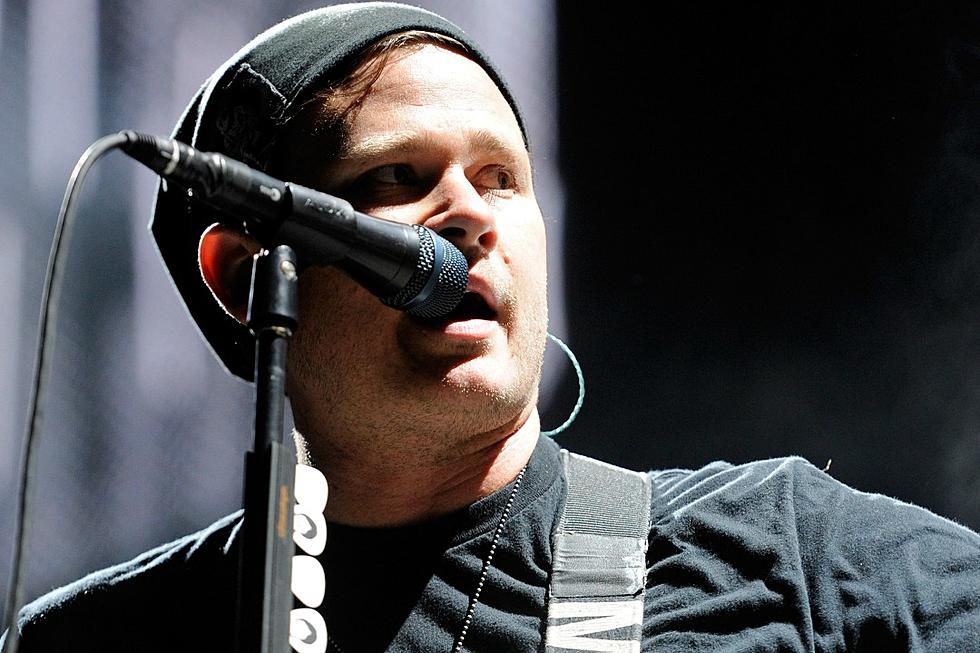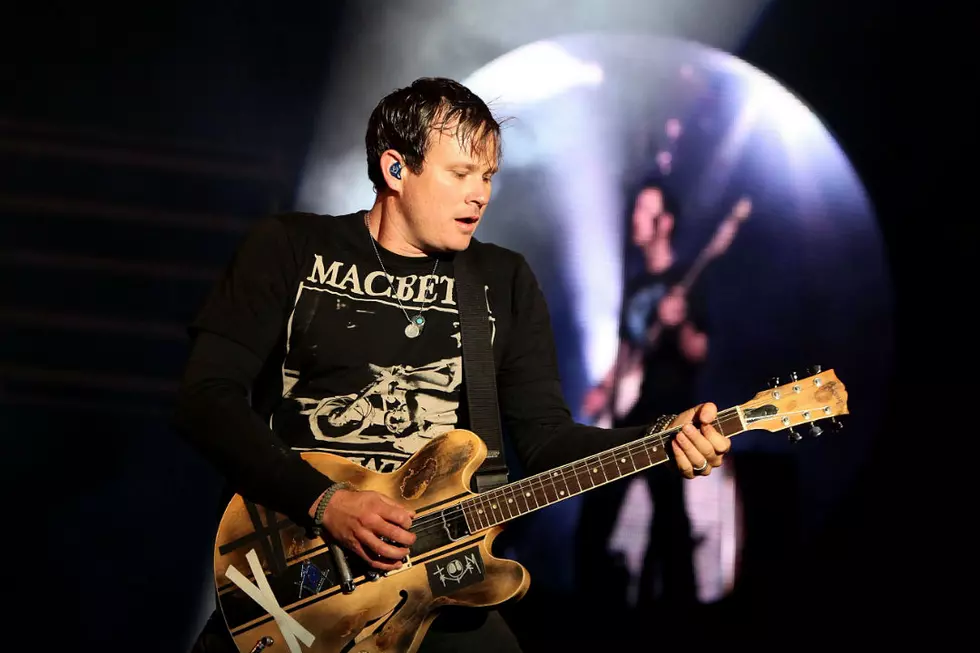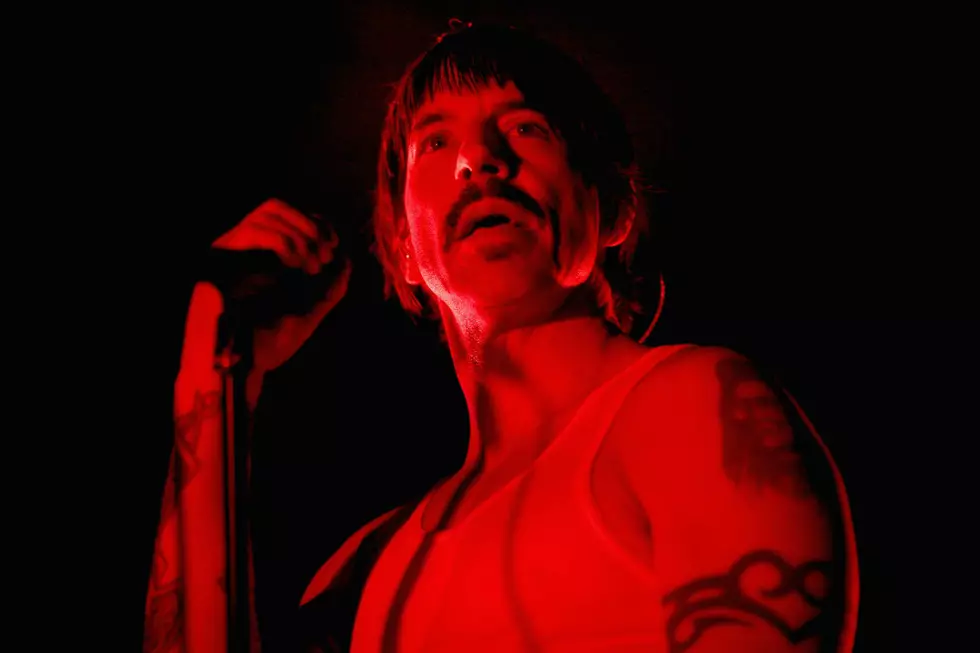How Blink-182 Made a Big Comeback with 2011’s ‘Neighborhoods’
Did Blink-182’s blitzkrieg “Heart’s All Gone” predict the future fallout of the band? Over Travis Barker’s frantic beats and clangs, singer-bassist Mark Hoppus lamented, “You seemed so sweet at the start, but the start’s all wrong / You say you speak from the heart, but your heart’s all gone.” He seemed to be whining at a lover, but with enough distance from the Sept. 27, 2011, release of Neighborhoods, it’s apparent the antagonist is former guitarist-vocalist Tom DeLonge.
Neighborhoods was meant to be Blink’s big comeback after an eight-year recording gap. The punk-pop trio’s indefinite hiatus resulted in the birth of side projects Angels and Airwaves, +44, Barker’s solo career and a multitude of other endeavors. DeLonge beat skin cancer; Hoppus moved to London with his family; and Barker became the sole survivor of a plane crash after fellow passenger DJ AM died of a drug overdose. Not exactly fodder for another Enema of the State, their breakthrough 1999 album with frat-boy classics such as “All the Small Things.”
Neighborhoods was about big things: the sobering role of fatherhood, coping with loss and depression, and post-millennial paranoia. Playing upon the urban-sprawl theme, the songs careened across genres. Most prevalent was DeLonge’s appreciation for arena rock groups such as U2, whose fingerprints were all over his Angels and Airwaves records. With its synthetic swirls and lighter-ready chorus, the epic “Love Is Dangerous” could have been an outtake from All That You Can’t Leave Behind.
Hoppus tried to steer the ship more toward emo and thrash, evident in the quick-tempo and quick-tempered “Heart’s All Gone” and “Natives.” Tracks such as these featured the more familiar Blink attributes: giddy guitar noodling, unbridled drumming and repetitive verses.
Yet for all of the bassist’s attempts, that old Blink spirit was lacking. The self-referential “Kaleidoscope” saw Hoppus singing, “So lock me up in a studio / Fill it up with sound and scenarios” as though he realized the band couldn’t rekindle its zany magic. Neighborhoods was recorded in a disjointed manner, with DeLonge sending his parts from his own studio. It was a point of contention that haunts the threesome to this day. Barker said in a 2016 interview that he was soured by DeLonge’s prog-pop ambitions, saying the guitarist wanted “to record songs that basically sound like Coldplay.” On the other hand, DeLonge told reporters that he was disappointed his band mates didn’t try to reach for the cosmos on Neighborhoods.
So where does that leave the legacy of the album today? In shambles. DeLonge is no longer a regular member of the group — he was replaced by Alkaline Trio’s Matt Skiba on guitar and vocals for Blink’s 2016 offering, California. And though DeLonge’s absence is felt (through a sentimental longing for his nasal delivery), California feels like a revitalized project. It has the pep Neighborhoods lacked, and more adequately represents the tastes of all the contributing musicians. True, Blink is still “living in the shadow of the helicopter,” as “MH 4.18.2011” goes, but after jettisoning DeLonge, they learned how to have fun again.
Neighborhoods on its own was not a bad album; it was just terribly indicative of a band on its way out. It was the aural equivalent of a reluctant family reunion prompted by a funeral.
Blink-182 Albums Ranked in Order of Awesomeness
More From Diffuser.fm









